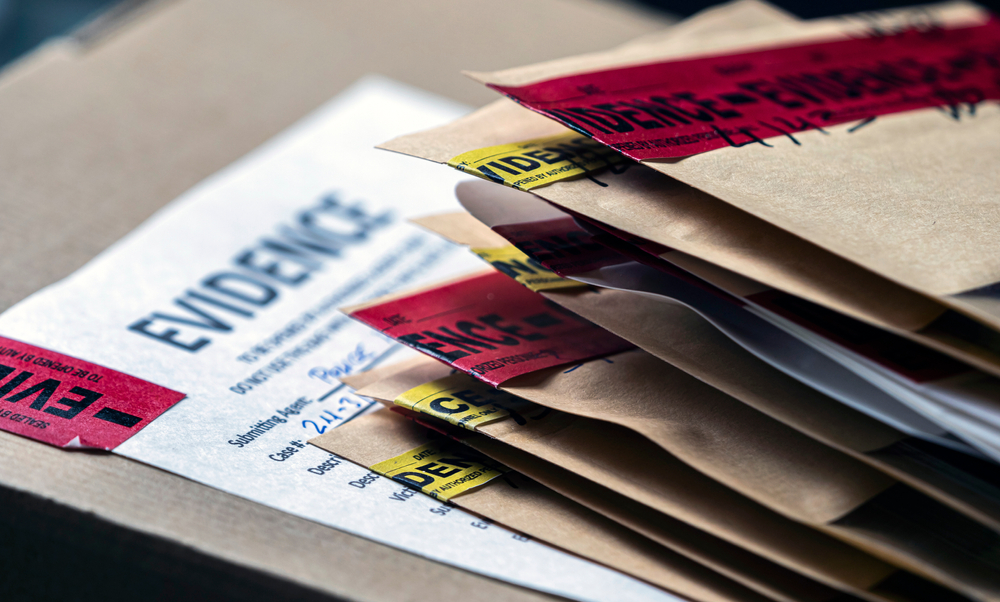
Postconviction Testing of DNA Evidence (Postconviction) Program
ABOUT POSTCONVICTION
- ABOUT
- WHY THIS MATTERS
Under the Postconviction Testing of DNA Evidence (Postconviction) Program, the Bureau of Justice Assistance (BJA) provides funding to help defray the costs (e.g., of additional personnel, overtime, testing supplies and services) associated with postconviction DNA testing for violent felony offenses (as defined by state law) in which actual innocence might be demonstrated. This supports the DOJ mission “to ensure fair and impartial administration of justice for all Americans.” While successful exonerations to correct injustice are notable program outcomes, the careful review, consideration, and closing of cases subjected to postconviction DNA testing that do not ultimately demonstrate innocence also work to advance the public’s interest that justice has been fairly applied.
The program aims to assist in:
- Identifying potential postconviction DNA testing cases.
- Reviewing appropriate postconviction cases to identify those in which DNA testing could prove the actual innocence of a person convicted of a violent felony offense as defined by state law.
- Locating biological evidence associated with such postconviction cases.
- Performing DNA analysis of appropriate biological evidence and reporting and reviewing of the DNA test results.
To learn more about the Postconviction Program and potential funding opportunities, please visit Postconviction Testing of DNA Evidence (Postconviction) Program.
Since the advent of forensic DNA analysis, a growing number of Americans convicted of violent crimes have been exonerated through DNA analysis of evidence that was untested at the time of trial. New technologies have increased the likelihood of successful DNA analysis of aged, degraded, limited, or otherwise compromised biological evidence. As a result, crime scene samples once thought unsuitable for testing may now yield viable DNA profiles. Moreover, samples that had previously generated inconclusive DNA results may be amenable to reanalysis using newer methods.
Key Performance Metrics
- More than 55,000 new cases reviewed and more than 125,000 continuing cases reviewed with current and previous grant funding
- More than 740,000 hours of case review performed, representing an estimate of more than 350 work years
- More than 2,200 cases where DNA analysis was performed
- More than 350 profiles uploaded to Combined DNA Index System (CODIS) and more than 100 CODIS hits
- 65 exonerations have resulted from this program representing more than 1,200 years served in prison
GRANTEES
This map is representative of all Postconviction Program awards made since 2020.
If you are interested in viewing more award data, please visit the OJP Award Data webpage.
| GRANTEE NAME | STATE | FISCAL YEAR(S) |
|---|---|---|
| UNIVERSITY OF ARIZONA | AZ | 2024 |
| CAL STATE LA UNIVERSITY AUXILIARY SERVICES INC. | CA | 2020 & 2022 |
| COUNTY OF ALAMEDA | CA | 2024 |
| COUNTY OF SACRAMENTO | CA | 2021 |
| OFFICE OF EMERGENCY SERVICES | CA | 2020, 2021, & 2023 |
| THE REGENTS OF THE UNIVERSITY OF COLORADO | CO | 2021 & 2024 |
| DEPARTMENT OF EMERGENCY SERVICES AND PUBLIC PROTECTIONS | CT | 2024 |
| EXECUTIVE OFFICE OF THE GOVERNOR OF DELAWARE | DE | 2022 |
| COUNTY OF FULTON | GA | 2020 & 2022 |
| UNIVERSITY OF HAWAII | HI | 2021 |
| STATE OF IOWA DEPARTMENT OF INSPECTIONS AND APPEALS | IA | 2023 |
| BOISE STATE UNIVERSITY | ID | 2020 & 2021 |
| COUNTY OF COOK | IL | 2021 |
| STATE OF ILLINOIS ATTORNEY GENERAL | IL | 2023 |
| UNIVERSITY OF ILLINOIS | IL | 2021 |
| COMMONWEALTH OF KENTUCKY | KY | 2021 |
| LOUISIANA STATE UNIVERSITY | LA | 2020 & 2022 |
| ORLEANS PARISH DISTRICT ATTORNEY | LA | 2021 |
| COMMITTEE FOR PUBLIC COUNSEL SERVICES | MA | 2020 & 2024 |
| COUNTY OF MACOMB | MI | 2023 |
| COUNTY OF WAYNE | MI | 2020 & 2022 |
| MICHIGAN DEPARTMENT OF ATTORNEY GENERAL | MI | 2022 |
| THE CURATORS OF THE UNIVERSITY OF MISSOURI | MO | 2020 |
| UNIVERSITY OF MISSOURI SYSTEM | MO | 2021 |
| JUDICIARY COURTS OF THE STATE OF NORTH CAROLINA | NC | 2020 & 2022 |
| NEW JERSEY DEPARTMENT OF LAW AND PUBLIC SAFETY | NJ | 2020 |
| DUTCHESS COUNTY | NY | 2024 |
| NEW YORK CITY OFFICE OF CHIEF MEDICAL EXAMINER | NY | 2024 |
| RESEARCH FOUNDATION OF THE CITY UNIVERSITY OF NEW YORK | NY | 2020 |
| FRANKLIN COUNTY BOARD OF COMMISSIONERS | OH | 2021 |
| CITY OF PHILADELPHIA | PA | 2021 |
| UNIVERSITY OF PUERTO RICO | PR | 2022 |
| COUNTY OF TRAVIS | TX | 2021 |
| DALLAS COUNTY TEXAS | TX | 2020 & 2022 |
| WASHINGTON STATE PATROL | WA | 2020 & 2022 |
| UNIVERSITY OF WISCONSIN SYSTEM | WI | 2024 |
RESOURCES
Publications
Multi-Media
FY2024 Grantee Orientation Webinar – Postconviction Testing of DNA Evidence (Postconviction) Program
FY2023 Grantee Orientation Webinar – Postconviction Testing of DNA Evidence (Postconviction) Program
Protocols
Research
Additional Information
HIGHLIGHTS AND EVENTS
- HIGHLIGHTS
- EVENTS
Upcoming Events
Past Events
Get timely
FORENSICS TTA PROGRAM updates
The Forensics TTA Team wants to hear from you!
If BJA Forensics Programs funding has played a role in your organization’s success, no matter how small or how large, we would love to hear about it! Please share your achievements with the Forensics TTA Team by clicking the ‘Submit Highlight’ button.






